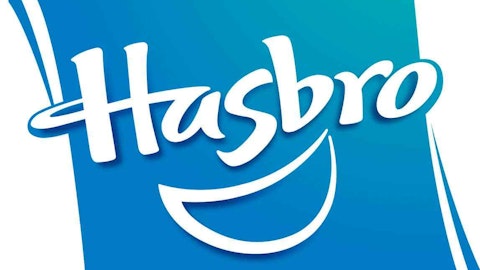The big threat
Regardless of the exact amount of disputed revenue, the broadcast networks could theoretically reassert control over their content by ending their public broadcasts. Instead, like cable TV channels, they would only be available through pay-TV services. Fox and CBS Corporation (NYSE:CBS) executives have already threatened to do this unless the courts side with them. Going off the air would protect the retransmission fee revenue stream, and could even allow them to raise those fees. Research firm SNL Kagan has estimated that ESPN (a cable-only channel) earns $5.54 per subscriber on average in transmission fees, far more than any of the broadcast networks.
On the other hand, broadcast networks have made their signals freely available to the public for decades for a good reason. There are still 11 million households accessing broadcast stations by antenna. The growing availability of content via online video services — such as Netflix, Inc. (NASDAQ:NFLX) and Hulu — could lead even more households to drop their pay-TV services in favor of broadcast TV and cheaper online video services. The 10% of households using broadcast TV probably watch the broadcast stations more than pay-TV households, which have access to dozens or even hundreds of extra channels. If these 11 million households represent 15% of broadcast TV viewing, shutting them out would naturally impact advertising revenues. According to SNL Kagan, CBS Corporation (NYSE:CBS) earned more than $4 billion in ad revenue last year, while Fox earned more than $2.5 billion. If a 15% drop in CBS viewership led to a 15% decrease in ad revenue (more than $600 million), CBS would have a hard time making this up through higher pay-TV transmission fees.
What next?
Aereo only serves the New York metropolitan area today, but it has announced plans to quickly roll out its service to other cities. In fact, Aereo recently asked the district court in New York (which denied the networks’ request to shut Aereo down last year) to bar the networks from suing it in these other cities. While the networks could still prevail in the upcoming trial, they appear to have long odds, given that the district court and circuit court both agreed that Aereo was likely to win on the merits.
The question is thus whether CBS Corporation (NYSE:CBS) and Fox — and potentially the other networks — would follow through on their threats to unilaterally stop broadcasting. This does not seem very likely for the moment. The immediate harm caused by Aereo is fairly minimal, since the networks are already giving their broadcast signals away for free to anybody with an antenna. By contrast, the likely lost advertising revenue from having fewer viewers would be quite significant.
However, in the longer-term, Aereo could incentivize the networks to improve the Internet-accessibility of their content. NBC, ABC, and Fox already provide online access to much of their content through their joint venture, Hulu. All of the networks offer some online streaming of their content through their own websites, as well. That said, these sites do not provide for live (or nearly live) TV; there is typically a delay of one day or more. In one exceptional case, CBS Corporation (NYSE:CBS) has allowed viewers to stream live NCAA basketball tournament games for free over the Internet.


